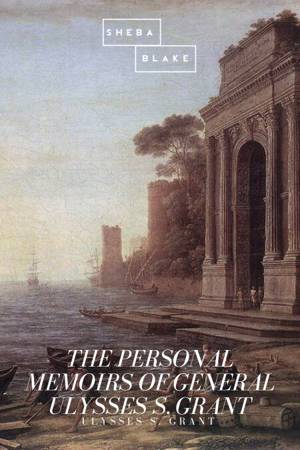
- Afhalen na 1 uur in een winkel met voorraad
- Gratis thuislevering in België vanaf € 30
- Ruim aanbod met 7 miljoen producten
- Afhalen na 1 uur in een winkel met voorraad
- Gratis thuislevering in België vanaf € 30
- Ruim aanbod met 7 miljoen producten
Zoeken
€ 3,99
+ 3 punten
Uitvoering
Omschrijving
The Personal Memoirs of General Ulysses S. Grant is an autobiography by Ulysses S. Grant, the 18th President of the United States, focused mainly on his military career during the Mexican–American War and the American Civil War, and completed as he was dying of cancer in 1885. The two-volume set was published by Mark Twain shortly after Grant's death. Twain created a unique marketing system designed to reach millions of veterans with a patriotic appeal just as Grant's death was being mourned. Ten thousand agents canvassed the North, following a script that Twain had devised; many were veterans who dressed in their old uniforms. They sold 350,000 two-volume sets at prices from $3.50 to $12 (depending on the binding). Each copy contained what looked like a handwritten note from Grant himself. In the end, Grant's widow Julia received about $450,000, suggesting a gross royalty before expenses of about 30%. The Personal Memoirs of Ulysses S. Grant has been highly regarded by the general public, military historians, and literary critics. Positive attention is often directed toward Grant's prose, which has been praised as shrewd, intelligent, and effective. He portrayed himself in the persona of the honorable Western hero, whose strength lies in his honesty and straightforwardness. He candidly depicts his battles against both the external Confederates and his internal Army foes.
Specificaties
Betrokkenen
- Auteur(s):
- Uitgeverij:
Inhoud
- Aantal bladzijden:
- 95
- Taal:
- Engels
Eigenschappen
- Productcode (EAN):
- 9783961898480
- Verschijningsdatum:
- 18/05/2017
- Uitvoering:
- E-book
- Beveiligd met:
- Digital watermarking
- Formaat:
- ePub

Alleen bij Standaard Boekhandel
+ 3 punten op je klantenkaart van Standaard Boekhandel
Beoordelingen
We publiceren alleen reviews die voldoen aan de voorwaarden voor reviews. Bekijk onze voorwaarden voor reviews.







